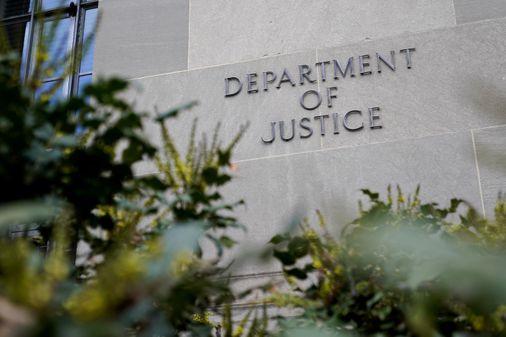The Justice Department has proposed changes to the rules governing state-run programs that provide financial assistance to victims of violent crimes. The aim is to address racial disparities and reduce the number of subjective denials of compensation. The proposal, put forth by the Justice Department’s Office for Victims of Crime, would overhaul how states handle victims’ compensation claims. This comes in response to an Associated Press investigation that revealed Black victims were disproportionately denied compensation in many states, often due to implicit biases within the criminal justice system.
If implemented, the changes would prevent states from considering a victim’s criminal history and eliminate some of the most subjective reasons for denials. The proposal acknowledges that certain populations may have criminal histories due to unjust treatment in the criminal justice system or coercion by traffickers. It argues that this can lead to unjustifiably disproportionate denials of claims for these populations.
State-run victim compensation programs provide financial assistance to thousands of Americans each year. The funds are used for various purposes such as funeral expenses, therapy, lost wages, and crime-scene cleanup. However, the AP investigation found that Black victims were disproportionately denied compensation in 19 out of 23 states that provided racial data. In some states, Black applicants were nearly twice as likely as white applicants to be denied. This resulted in thousands of Black families missing out on millions of dollars in aid each year.
Currently, victims are often denied compensation for subjective reasons that scrutinize their behavior before or after a crime. Black victims are nearly three times as likely to be denied for these reasons, including being accused of “contributory misconduct” without evidence. The proposed changes would limit when a state program can deny a person for misconduct and require states to specify what is considered contributory conduct and how it is applied in denials. The proposal also clarifies that state programs should not reclaim money received from crowdfunding sources like GoFundMe.
The proposed rule changes have been welcomed by individuals like Pamela White, whose son was initially denied compensation by Louisiana’s program. White had to take out a personal loan to cover her son’s funeral expenses while appealing the decision. She eventually won her case and expressed gratitude for the proposed changes, emphasizing the need for support during difficult times.
In recent years, some states have passed laws or made administrative changes to limit subjective denials or expand access to victim compensation. However, these changes have resulted in inconsistent access for victims across states. Advocates have called for federal rule changes to ensure a victim-centered approach and uniformity in considering claims. The proposed changes aim to achieve this by barring the consideration of previous criminal histories and removing administrative hurdles.
The proposal also provides states with more flexibility to expand services and approve claims. It allows for a broader definition of medical or mental health expenses, accommodating rural areas with limited providers and Native American healing practices. Additionally, it broadens the eligibility criteria beyond close familial relationships and allows states to define allowable property damage expenses that contribute to victim safety.
The proposed rule changes are now open for a 60-day public comment period. After processing the comments, final rule changes will be submitted, which can take several months.



changes to address this issue, but the Justice Department’s proposal provides a comprehensive and uniform approach to tackle inequalities in state crime victim funds. By prohibiting the clawback of funds received from crowdfunding sources, the proposal ensures that victims can fully benefit from the support they receive from their communities. Overall, these reforms are a step towards creating a fairer and more equitable system for crime victims across the country.
changes to address this issue, but the Justice Department’s proposal provides a comprehensive and uniform approach to tackling inequalities in state crime victim funds. By prohibiting states from clawing back money obtained through crowdfunding sources, such as GoFundMe, the proposal ensures that victims can access the financial support they need without facing additional burdens. This reform is a significant step towards creating a fairer and more equitable system for crime victims, ultimately helping to alleviate some of the financial hardships they face during their recovery process.